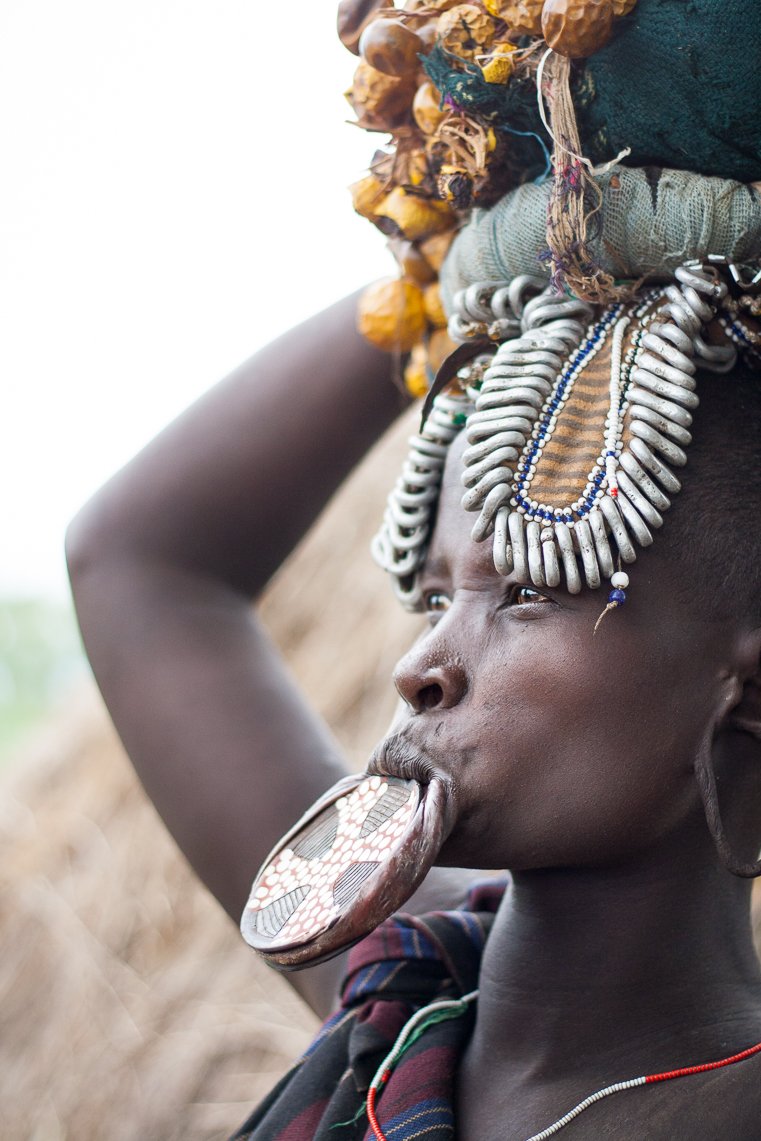A Journey Through Noble Ethiopia
Ever since I started working in travel, Ethiopia settled itself in the back of my mind as the ultimate destination. Growing up on the opposite side of Africa, I was intrigued by this seemingly different and mysterious country that shared my continent.
As a university student of comparative religion, I studied Abyssinia's colossal past, its millennia of history intertwined with the spread of Judaism, Christianity and Islam. I marveled at Ethiopia’s knack for keeping to its own on a continent that was ravished by colonization.
Ethiopia is one of those destinations that requires travelers to be prepared on many levels, not only physically, but also emotionally and spiritually. The sacred spaces, diverse peoples and beguiling landscapes demand readiness and receptivity on the part of the traveler. In 2018, we prepared ourselves for something absolutely remarkable, and our experience was nothing short of that.
Among all the safari trips, glamping expeditions and wild adventures that are stealing the show in today’s travel industry, Ethiopia seems to take the backseat. However, rapid growth and development is seeing the country open up to tourism, while remaining raw and untouched. The cultural diversity of Ethiopia allows for a very dynamic and enlightening travel experience that takes you from the anthropological beginnings of mankind and the profound history and spirituality of Christian Orthodox beliefs, to the tribal heart of the African continent in the Omo Valley, all nestled amongst the natural beauty that paints the country north to south.
“Ethiopia is one of those destinations that requires travelers to be prepared on many levels, not only physically, but also emotionally and spiritually. The sacred spaces, diverse peoples and beguiling landscapes demand readiness and receptivity on the part of the traveler. ”
We ventured across the country’s immense northern plateau and the tribal regions of the south in the company of our guide and friend, Yared Zerihun. We flew above arid landscapes and rocky mountains, drove through valleys and national parks, and hiked along dirt roads leading to small villages fringed with welcoming smiles.
In the “Noble North”, we glided along the blue waters of Lake Tana to greet the monks and nuns of the 500-year old island monasteries. We strolled through the curious medieval castles of Gondar and trekked along the rock hewn churches of Lalibela in traditional clothes. We walked along the 3000-year old pathways of Queen of Sheba’s palace in Axum, and dined on mouthwatering Enjira and Tibs.
To the south, an entirely different culture and people welcomed us. The Omo Valley is rough and raw - perhaps one of the most ethnographically diverse regions in the world. Our journey along muddy roads took us to the small towns of Arba Minch, Konso and Turmi where we had the opportunity to witness some of the last living tribes of our time. The chief of the Dorze tribe showed us his family home and invited us to a meal in his beautiful village. The women of the Hamer tribe graciously gave us shelter in their hut as we waited out a rainstorm. The Karo tribe told us stories over a campfire.
Every day offered an exciting and transformative experience. In fact, one of the most remarkable travel moments of my life took place during an early morning mass at Bet Gabriel in Lalibela. Thanks to Yared and his approachable personality, we were allowed to enter the heart of the limestone church set in the hills of Lalibela, during this auspicious ceremony. In this cramped, sacred space overflowing with incense and serenity, I was surrounded by pilgrims and priests who were too enthralled by their own singing to care about the intruders. I moved with the ebb and flow of the gentle crowd, and knew this was a moment I would never forget.
“In this cramped, sacred space overflowing with incense and serenity, I was surrounded by pilgrims and priests who were too enthralled by their own singing to care about the intruders. I moved with the ebb and flow of the gentle crowd, and knew this was a moment I would never forget.”
Yared walked us through his country’s history with great pride. Tracing its roots to the 2nd millennium BC, Ethiopia is famous for being the first in many areas. It is widely considered as the region from which modern humans first set out for the Middle East and beyond. Of course, we also have Ethiopia to thank for the coffee bean, which was discovered in its fertile valleys. As he leafed through a 500-year old bible at the Ark of the Covenant in Axum, Yared explained that Ethiopia’s ancient Ge’ez script is one of the oldest alphabets still in use in the world.
Ethiopia’s unchanged culture and traditions surpassed my expectations, leaving me to reconsider the meaning of today’s overused term of experiential travel.
Interested in Ethiopia?
Tigray is a region going through political and civil unrest, but major destinations like Addis Ababa and Lalibela are generally considered safe. Complete the form below to start planning your private trip to Ethiopia.
More from the Travelogue
























